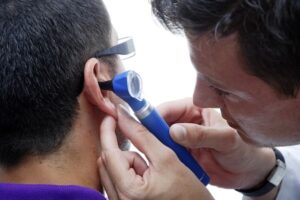Understanding Dizziness: Causes, Symptoms, and Step-by-Step Guide for Relief
Introduction
Dizziness is a common sensation that affects many people at some point in their lives. It can range from mild to severe and may be accompanied by other symptoms such as nausea, sweating, or loss of balance. While dizziness can often resolve on its own, it’s essential to understand the potential causes and steps for relief to ensure your well-being. In this blog post, we will discuss the common causes of dizziness, its symptoms, and a step-by-step guide for alleviating this condition.
Causes of Dizziness
1. Dehydration: Not drinking enough water or losing fluids through sweating can lead to dehydration, which may cause dizziness.
2. Low blood sugar (hypoglycemia): Skipping meals or not consuming enough carbohydrates can result in low blood sugar levels, causing dizziness and other symptoms.
3. Anemia: A lack of iron in the body can lead to anemia, which may cause dizziness due to reduced oxygen supply to the brain.
4. Vertigo: This is a specific type of dizziness caused by inner ear problems that affect balance.
5. Medications or alcohol consumption: Certain medications and excessive alcohol intake can trigger dizziness as a side effect.
6. Migraines: Some people may experience dizziness as an early warning sign (aura) before a migraine headache.
7. Heart-related issues: Conditions such as arrhythmia, heart failure, or orthostatic hypotension can cause dizziness due to reduced blood flow to the brain.
8. Chronic health conditions: Long-term illnesses like diabetes, multiple sclerosis, and Parkinson’s disease may contribute to dizziness.
9. Stress and anxiety: High levels of stress or anxiety can lead to feelings of lightheadedness or dizziness.
10. Motion sickness: This occurs when the brain receives conflicting signals from the eyes, inner ear, and sensory nerves during movement, causing dizziness.
Symptoms of Dizziness
Dizziness may manifest in various ways, including:
1. Lightheadedness or feeling faint
2. Unsteady balance or difficulty walking
3. Spinning sensation (vertigo)
4. Nausea and vomiting
5. Sweating
6. Blurred vision
7. Headache
8. Ringing in the ears (tinnitus)
9. Fatigue
10. Chest pain or rapid heartbeat (in severe cases)
Step-by-Step Guide for Relief from Dizziness
1. Hydrate: Drink plenty of water to replenish fluids and alleviate dehydration, which is a common cause of dizziness.
2. Eat regularly: Consume balanced meals with carbohydrates to maintain stable blood sugar levels and prevent hypoglycemia-induced dizziness.
3. Rest: If you feel dizzy, lie down with your head elevated or sit in a comfortable position until the sensation passes.
4. Breathe deeply: Focus on deep breathing exercises to increase oxygen supply to the brain and reduce feelings of lightheadedness.
5. Move slowly: Avoid sudden movements that can trigger dizziness due to changes in blood pressure or inner ear issues.
6. Acupressure: Apply gentle pressure using your fingertips at specific points on your body, such as the inside of your wrist or between your eyebrows, which may help alleviate dizziness symptoms.
7. Over-the-counter medications: Consider taking over-the-counter antihistamines, anti-nausea drugs, or pain relievers to manage dizziness caused by motion sickness, anxiety, or other factors.
8. Consult a healthcare professional: If your dizziness persists or worsens, seek medical attention to rule out underlying health issues and receive appropriate treatment.
9. Lifestyle adjustments: Manage stress through relaxation techniques like yoga, meditation, or deep breathing exercises. Maintain a balanced diet, exercise regularly, and get adequate sleep to support overall well-being.
10. Gradual adaptation: If you experience dizziness due to motion sickness during travel, try gradually adapting to the movement by starting with shorter trips and practicing relaxation techniques while in transit.
Conclusion
Dizziness can be a concerning symptom that affects many aspects of daily life. By understanding its potential causes and following our step-by-step guide for relief, you can better manage this condition and improve your overall well-being. Remember to consult with a healthcare professional if dizziness persists or worsens to address any underlying health issues promptly.




Hello there, just became alert to your blog through Google, and found that it’s truly informative.
I am gonna watch out for brussels. I will appreciate if
you continue this in future. Numerous people will be benefited from your writing.
Cheers! Escape rooms
Can you be more specific about the content of your article? After reading it, I still have some doubts. Hope you can help me.
Thank you for your sharing. I am worried that I lack creative ideas. It is your article that makes me full of hope. Thank you. But, I have a question, can you help me?
I don’t think the title of your article matches the content lol. Just kidding, mainly because I had some doubts after reading the article.
Your article helped me a lot, is there any more related content? Thanks!
Your point of view caught my eye and was very interesting. Thanks. I have a question for you. https://www.binance.info/en-IN/register?ref=UM6SMJM3